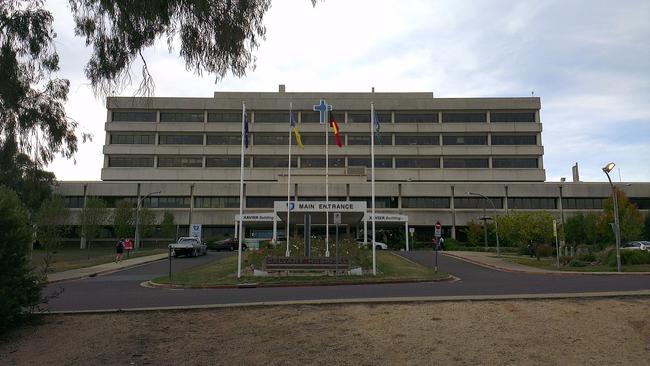Calvary Hospital fights ‘active, hostile’ takeover in ACT Supreme Court
Lawyers representing Calvary Public Hospital accuse the ACT government of an ‘active takeover’ of the Catholic facility.

Lawyers representing Calvary Public Hospital have accused the ACT government of orchestrating an “active, hostile takeover” of the Catholic facility, arguing on the first day of court hearings to halt the acquisition that the legislation being used to gain control of the site is invalid.
Calvary Hospital argued the government had not satisfied the just terms requirement of the acquisition because it had not been reasonably compensated for the loss of the Bruce site, as it includes “every species of valuable right and interest” including “rents, rights of way, rights of profit and usage of land”.
Catholic leaders have criticised the ACT government for setting a dangerous precedent and undermining religious freedoms by forcibly acquiring the hospital, which has come under criticism in the past for its stance on voluntary assisted dying and abortion.
Barrister David Williams, who represented Calvary Health Care ACT, told the full bench of the ACT Supreme Court that the dispossession was “unique”, arguing that the legislation was rendered invalid “as the act supplies no compensation for the acquisition of the business of the hospital”.
“It is a piece of legislation which positively mandates the co-operation of Calvary in its disposition by the territory,” he said.
“It does so under the ultimate threat of police being utilised to use force, such force as is reasonably necessary, to allow representatives of the territory to exercise the territory’s function under the act or to give effect of its purpose.
“And that purpose constitutes or at least includes the compulsory acquisition of Calvary’s business.
“The task of the court is not to rule on the social desirability or otherwise of the territory’s exercise of power in enacting this legislation, the task of the court is to examine whether the legislation is within the legislative power of the territory.”
ACT solicitor-general Peter Garrisson criticised the legal basis of Calvary Health Care’s argument, saying that it failed to “truly grapple with the operations of the legislation act”.
“The plaintiff adopts an unduly narrow and rigid construction of the legislation which may serve the plaintiff’s purposes for the proceedings, but strikes an unusual position for an advocate seeking compensation,” he said.
As the Supreme Court considers the Calvary bid for an injunction to stop the forced takeover, the ACT Labor-Greens could face an independent Senate inquiry into the rushed change of laws and compulsory acquisition.
ACT Chief Minister Andrew Barr has already declared that the territory government will “correct” the laws to allow the takeover if the Supreme Court accepts the Calvary argument.
But some Coalition and independent senators are likely to move a motion in the Senate next week to order an inquiry into the process so far.
The ACT government suspended normal parliamentary procedures and introduced a special new law to force the sale.
Church, business and medical leaders have claimed the new law risks setting a precedent for the takeover of religious-run services, is concerning staff and patients and is a “sovereign risk” to businesses with leasehold property in the ACT.
LNP senator Matt Canavan is organising support for a motion to investigate all aspects of the Calvary purchase.
Mr Williams drew heavily on the 1940s Bank Nationalisation Case, in which the commonwealth’s attempts to privatise the banks were knocked back by the court on the basis that property needed to be acquired on just terms.
The court is due to hand down its decision by June 13.



To join the conversation, please log in. Don't have an account? Register
Join the conversation, you are commenting as Logout